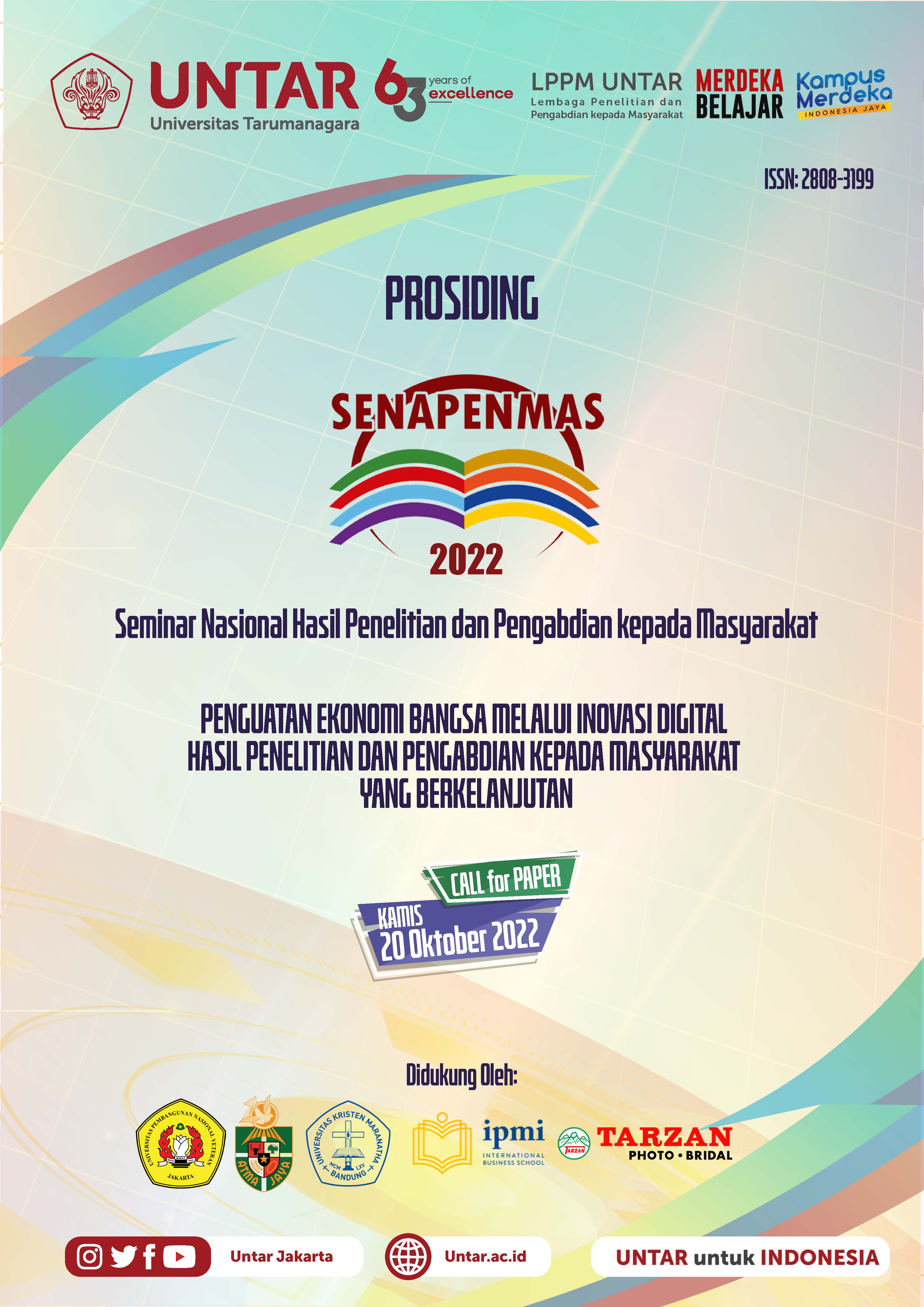RELEVANSI ASAS LEGALITAS DALAM HUKUM PIDANA DENGAN DIGITAL TRUST DALAM PENGUATAN EKONOMI DIGITAL INDONESIA
Main Article Content
Abstract
Progress and ease of transacting in the cyber-world that occurred in the era of modernization 4.0. has positive and negative impacts, negative impacts that make the focus of attention for all of us as actors and the government, especially as law enforcers in protecting the rights of electronic business transaction actors. In connection with the high number of transactions that occur, this can be used to strengthen the progress of the digital economy through increasing digital trust. Indonesia as a state of law, the Criminal Code as a law which is a legacy of the Netherlands is measured by its relevance to the principles of criminal law, especially the Legality Principle which is manifested in the form of parsing the elements of offenses contained in the articles of the Criminal Code that are correlated with criminal acts that occur in transactions in cyberspace, including counterfeiting; destruction, theft; embezzlement. So the authors raise the issue of how the relevance of the principles of criminal law and digital-trust in strengthening Indonesia's digital economy is studied from the Criminal Code. By using juridical-normative research, with secondary data, covering primary legal materials, namely the positive law of the Criminal Code, and secondary legal materials (books, journals, articles). The nature of descriptive research with a qualitative approach in order to obtain the symptoms studied. Unraveling the elements of subjective and objective offenses from the articles of the Criminal Code as consideration for measuring the performance of the Criminal Code in increasing digital-trust. With the conclusion that the Criminal Code does not maximize digital trust in the digital economy, because it is outdated so that if forced to implement it will apply many analogies that are contrary to the principle of legality.
Kemajuan dan kemudahan bertransaksi dalam dunia-cyber yang terjadi dalam era modernisasi 4.0. memiliki dampak positif dan negatif, dampak negatif yang menjadikan fokus perhatian bagi kita semua sebagai pelaku dan pemerintah khususnya sebagai penegak hukum dalam melindungi hak para pelaku transaksi bisnis elektronik. Berkaitan dengan tingginya transaksi yang terjadi maka hal ini bisa dimanfaatkan untuk menguatkan kemajuan ekonomi digital melalui peningkatan kepercayaan digital di Indonesia sebagai negara hukum, KUHP sebagai kodifikasi hukum pidana yang merupakan warisan Belanda jika diukur relevansinya dengan Asas Legalitas diwujudkan dalam bentuk mengurai unsur-unsur delik yang terkandung dalam pasal-pasal KUHP yang berkorelasi dengan tindak pidana yang terjadi dalam transaksi di dunia maya, diantaranya pemalsuan; pengrusakan; pencurian; penggelapan. Sehingga para penulis mengangkat permasalahan bagaimana relevansi Asas Legalitas dalam hukum pidana dengan digital-trust sehingga bisa memperkuat ekonomi digital Indonesia. Dengan menggunakan metode penelitian yuridis-normatif, dan menggunakan bahan hukum primer yaitu hukum positif KUHP, dan bahan hukumsekunder (buku, jurnal, artikel). Sifat penelitian deskriptif dengan pendekatan kualitatif guna mendapatkan gejala- gejala yang diteliti. Mengurai unsur-unsur delik subjektif dan objektif dari pasal KUHP sebagai bahan pertimbangan serta menganalisis kedudukan KUHP dalam meningkatkan digital- trust. Dengan kesimpulan bahwa KUHP tidak bisa secara maksimal berfungsi untuk meningkatkan kepercayaan digital dalam ekonomi digital, karena telah usang sehingga jika dipaksakan untuk diimplementasikan akan banyak menerapkan analogi yang bertentangan dengan Asas Legalitas.
Article Details
Section

This work is licensed under a Creative Commons Attribution-NonCommercial-ShareAlike 4.0 International License.
This work is licensed under a Prosiding Senapenmas Creative Commons Attribution-ShareAlike 4.0 International License.
